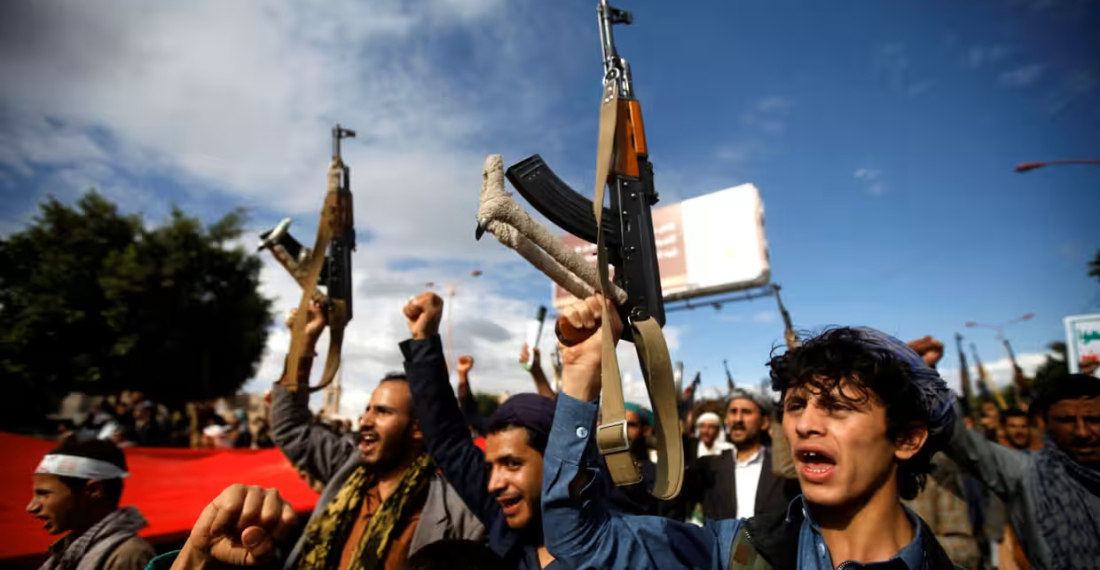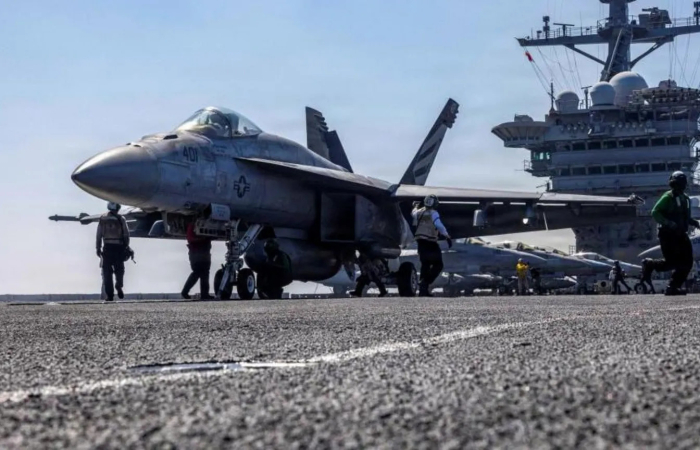After nine years of war and efforts to stop it, Yemen is moving away from peace as different groups develop alternative, often contradictory, visions on how to achieve it. Throughout the conflict, the Yemeni war took different turns, and sometimes one could see progress towards peace. The latest developments resulting from the Israel-Hamas war, are however having the most damaging impact on peace efforts.
The Houthis’ military actions in the Red Sea and the direct global response towards those actions by striking targets within the Houthi sovereign territory are challenging the resolution of the Yemeni conflict at this stage. This plays out in various ways. First, the recent events are killing the last bit of hope for young Yemenis now that all indicators point towards escalation, with little chance of addressing economic and social needs. let alone the security and stability that is needed for good governance.
Many Yemenis have developed strong sentiments towards the Israel war on Gaza. Some demonstrate an unprecedented wave of national pride in the supposedly supportive role that the Houthis are playing, while others point out how Houthis have capitalized on regional events for their political purposes while risking the peace process. Regardless of what Yemenis think, the Houthis have scored some big political goals. Those goals will certainly not help resolve the conflict or address the humanitarian crisis The focus on locally driven peace is now shifting towards a focus on dealing with Houthi threats in the region, and this is yet another disappointment for ordinary Yemenis.
Second, the Houthi involvement in the Gaza war serves as a prove of what Yemeni experts have been pointing out for a long time now: Houthis have a radical ideology that thrives on violence and seeks regional escalation with complete disregard to the interest of Yemen and its people. Whilst Iran does play a role in overall Houthi direction and strategy, the events in the Red Sea demonstrate that Houthis are willing to risk the peace process no matter the consequences. Undoubtedly, the US-UK airstrikes will harm Yemen and the peace process and if the airstrikes continue, they will further reduce the momentum for, and interest in peace.
Third, The Houthi escalation showcases how ineffective the internationally recognised government of Yemen has become, and the amount of sovereignty and legitimacy that it is losing. The Yemeni government has for several years failed to provide law and order in areas under its control and failed to consolidate its power and sovereignty amidst a plethora of competing local political factions. The government is currently going far and wide to support, in various international settings, the Western narrative about the Houthis’ actions in the Red Sea. This will not go well with Yemenis who have immense love and solidarity for innocent Palestinians and feel that the Houthis, despite their ideology and crimes, are exhibiting an excellent show of support for the Palestinians currently under siege in Gaza. It also does not go well with Yemenis because the government failed to act upon their commitments, in the aftermath of the April 2022 ceasefire, to bring an end to the Houthi insurgency and bring stability to the country. The support for the Yemeni government’s push towards peace is likely to start to fade, risking the very existence of the internationally recognised regime. In fact, some representatives in the government have already spoken in favour of mobilising international support to re-engage the Houthis in combat. Thus, Yemenis, with their various opinions on regional events, are speaking of the immense threat to peace with many expecting escalation as the only possible reality for the short term.
However, others are suspicious about the recent escalations which they interpret as theatrical, and doubt whether the US-UK airstrikes will deter Houthi actions. They argue that the United States is cosying-up to the Iranians. This can be via backtracking on security commitments in the region, not addressing the root causes of insurgencies by Iranian proxies, sometimes warning those proxies of incoming attacks, and being diplomatically lenient with the Iranians. Such an argument is familiar and goes back to the days of the Iraq war. Now, Yemenis are warming up to this narrative despite the fact that for a long time it was considered a conspiracy theory. This is also not new in the case of Yemen as the international community has shown sympathy towards the Houthis on several occasions on both military and diplomatic fronts.
Certainly, Yemenis and Arabs in general, should take matters into their own hands. The lack of effective American response to address the Iranian threat in the region for decades is casting doubt on America’s role in the region, sometimes by Israelis themselves who are the primary ally of the United States in the neighbourhood. Yemenis, like their immediate neighbours, want a commitment to peace and prosperity from the international community. Neither the Houthi escalation nor the US-UK strikes serve in that direction.
For many young Yemenis who were still in schools when the Houthis marched onto Sana’a, it is unfathomable how the Houthis grew exponentially and threatened peace at every turn. No one, at least from the younger generations, expected the situation to spiral out of control in the way it has. The divisive radical Houthi ideology has damaged the country, but young Yemenis stayed hopeful for the most part. Now, neither the government nor the international community is giving enough hope for peace resulting in a sense of utter frustration.
source: Noman Ahmed Ashraf is a researcher and writer from Yemen and Pakistan. Currently based in the United States, he has experience working with think-tanks and human rights groups, as well as on a freelance basis. His work involves peacebuilding, Track II diplomacy, humanitarianism, and advocacy.







